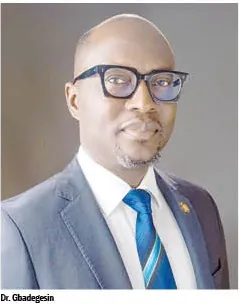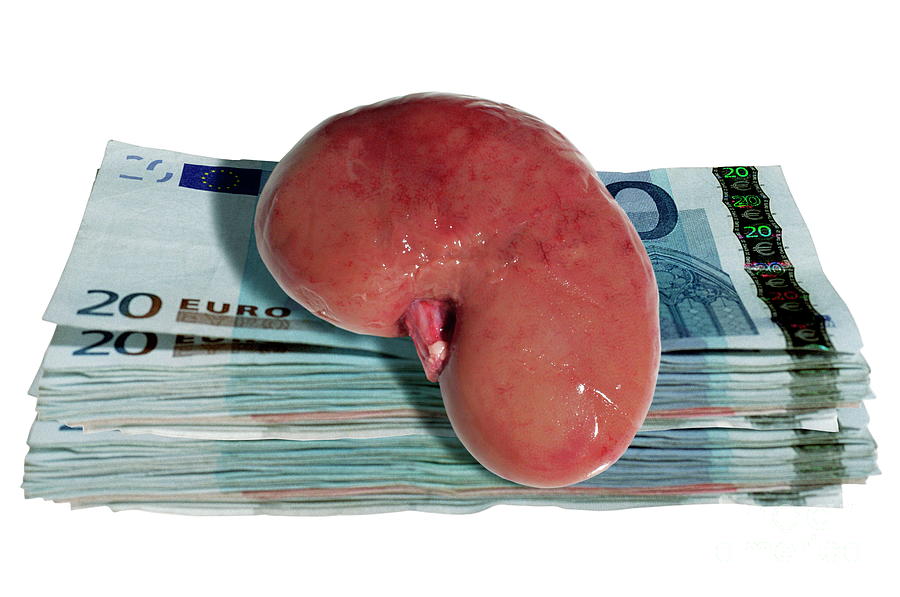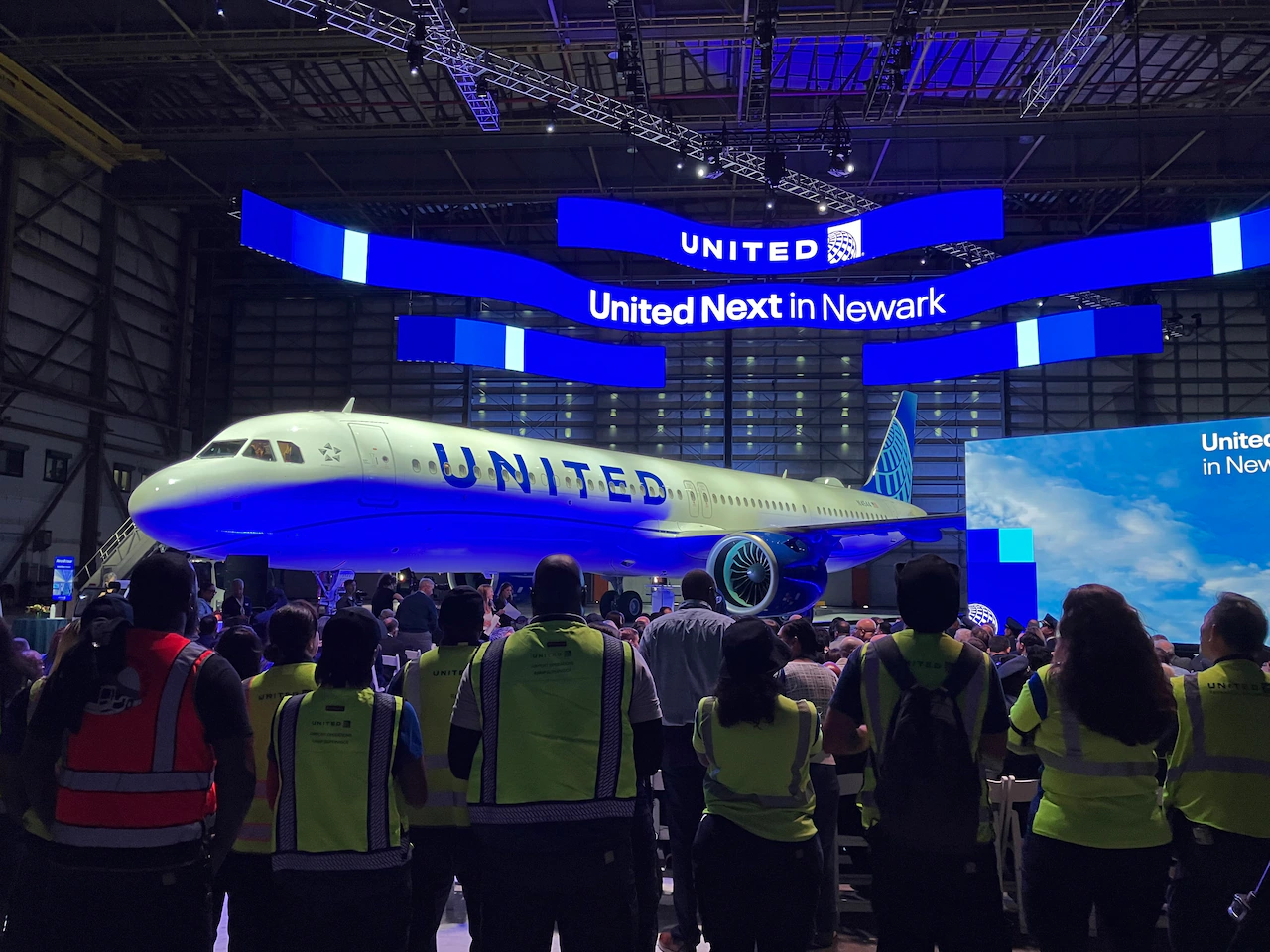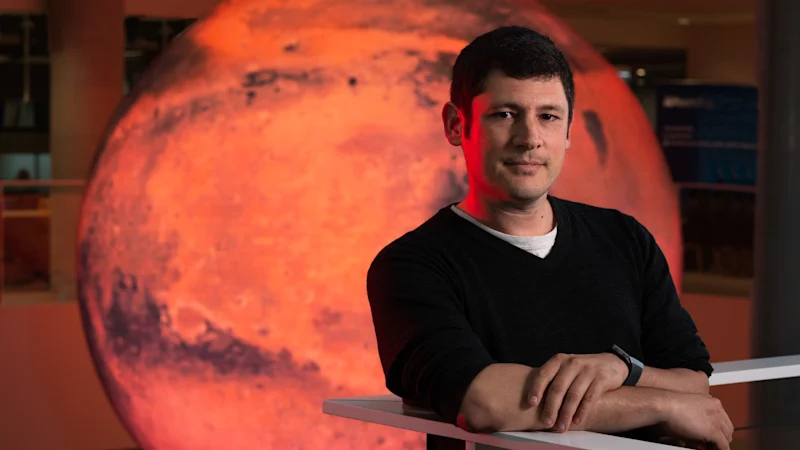By Dayo Ayeyemi
Copyright tribuneonlineng

Dr. Muyiwa Gbadegesin is the Managing Director, Lagos Waste Management Authority (LAWMA). He was a keynote speaker at the just concluded annual lecture of Property and Environment Writers Association of Nigeria (PEWAN), where he shed more light on the waste-to-wealth initiatives of the state government. DAYO AYEYEMI interviewed him on the sidelines of the event. Excerpts:
Speaking about the numerous policies that you plan to bring about, can you bring us up to speed on some of those initiatives?
Well, we talked about waste management and how it is integrated into all the pillars of the Themes Plus Agenda of the Sanwoolu administration. We’re talking about how to keep our environment clean. We’re talking about waste collection, the need for every household and every commercial outlet to sort their waste at the source.
I also emphasised that there’s value in waste and that many of the things that the infrastructure investments being made by the state government and its partners, are designed to unlock a huge economic value for residents of Lagos. We’re going to create jobs. We’re going to create opportunities for people to make money by separating out the valuable segments of our waste stream.
It’s not only plastics…
I know many people are already engaged in plastics recycling. Some of them making N500,000, N700,000 a year.That’s real. But there are also other waste streams. You have glass bottles, you have metals, which a lot of people are taking advantage of as well.
You have textile waste and then you have 50 per cent of organic waste. That’s about 6,500 tonnes of the 13,000 tonnes is organic waste. This can be turned into compost, it can be turned into cooking gas, and it can also be turned into animal feed for those who are raising chickens. You can produce chicken feed from a lot of organic waste that’s coming from the market.
We already have pilot projects for example, like I talked about during my lecture. I talked about the Ikosi food market, where we’re going to commission a biodegradable in partnership with a company, the Ministry of Environment and the Ministry of Agriculture. And that model will be replicated to all the other markets. So in implementing the Themes Plus agenda, waste management is critical.
In Africa as a whole, we have a value of about $7.6 billion. In Lagos, which is the biggest economy in Africa, the value that’s embedded in waste management, the circularity in waste management is about $2.5 billion. So, that’s a lot of money, it’s a lot of jobs.
Today, we are engaging with the Property and Environment Writers Association of Nigeria in their annual conference, so that they can help us to take this message to the people of the state.
When is the Lagos State government rolling out the technology – waste collector and how can the state abide by this initiative that’s coming up soon?
We are already rolling that out. Over the last two years, many of our residents already have smart bins.
And these smart bins have technology such as the Radio Frequency Identification Tag,(RFID), which will enable us to know when your waste is collected by the PSP operator. It’s ensuring that you are getting good service for the money you’re paying them. And if you don’t have a smart bin, I would encourage you to go out and get it.
Go to the website – LAWMASmartBins.com, purchase that bin. It comes with a very generous instrumental payment option. In addition to that, the new compactor trucks that we’re bringing in are advanced, clean energy, and will enable us to track the movement of the waste collector’s collection trucks so that we ensure they’re doing what they’re supposed to be doing at every point in time. In addition, we’re going to start with improved billing systems as well. That will come online in the next six months to one year.
So what is the level of work at the Olusosun material recovery site?
We’ve done a lot of the preparatory works. We’ll be doing a groundbreaking ceremony within the next couple of weeks, to which you’ll all be invited. Once we do the groundbreaking, we have an 18-month construction timeline for the transfer loading station and the associated material recovery facility.
You are aware that our plan is to build a transfer loading station at Olusosu and one at Solous. These are the two major legacy dumpsites, and each of them will be supported by a material recovery facility.
For Olusosu, the material recovery facility will be in the corridor, and for Solous, the material recovery facility will be in the battery.
You have just mentioned Olusosun as one of the transfer loading stations, I once heard that the government is trying to eradicate Olusosun dumpsite. Is that true?
Yes! A transfer loading station is only like a pit stop in the collection and transportation of waste. The trucks will dump into the enclosed transfer loading station, something like what we have at Simpson, and the waste will be evacuated in long-distance trailers to the material recovery facility.
But the dumpsite itself will be decommissioned. We’ll tap all the gas that’s trapped in there, and then we’ll cover it up so that, over the next few years, who knows, in the future, it could become a tennis court. Those of you who are tennis fans, Flushing Meadows, where you had the U.S. Open a month ago, used to be a dumpsite.
So in the future, Olusosu will become something like a recreational centre. We’ll close it in 18 months, and then we’ll start building.
What is the state of recycling plants in Lagos?
We have a lot of privately established recycling plants. For example, just three months ago, Coca-Cola opened their recycling facility in Apapa, and that is working very well. Now, they are expanding collection to the whole of Apapa, Iganmu, Ijora-Badia and all other areas, to mop up plastic waste.
Some of the other producers, like 7-Up, are also establishing plants. We have other recycling plants that have been established over the last few years. The challenge for them right now is because, you know, I mentioned the scavengers, who we now call urban miners, they’re scouting so much of these plastics. Also, you have unregistered Chinese companies coming in to take those plastics to export. So the local plants don’t always have enough plastics. But we’re working on that. Anyone who is not registered to control plastics is wrong, and we’re going to shut them down to ensure that the established plants always have enough raw materials.
What do you see as the single most significant environmental challenge for Lagos in the next five years? And what practical strategy can be implemented in that sense?
The biggest challenge is our own behaviour as residents of Lagos.
Our inability to understand that waste is wealth. And that’s why you have people throwing away so many things to the roadside and drainage. You have these scavengers going to pick through it.
It shouldn’t be like that. We want people to look at what they have and discover that it has value. What can I make from this, and then keep it separate.
We have those who need it, they will come and collect it from you. We are doing that in a lot of estates. So that’s the biggest challenge. People understanding the value and then also the infrastructure to support the sorting. That’s why the state is investing in bays.
How do you enable people to have somewhere to keep those items? And then even when they keep those items, how do you collect it from them? So that’s the challenge.
That is what we are working on. And that’s why I mentioned that in themes plus agenda, there are many programmes that are built into that, and those are the things we’re going after, that we’re talking about. So, there’s a plan in place. I want you to stay tuned and help us report and tell the people.
READ MORE FROM: NIGERIAN TRIBUNE



